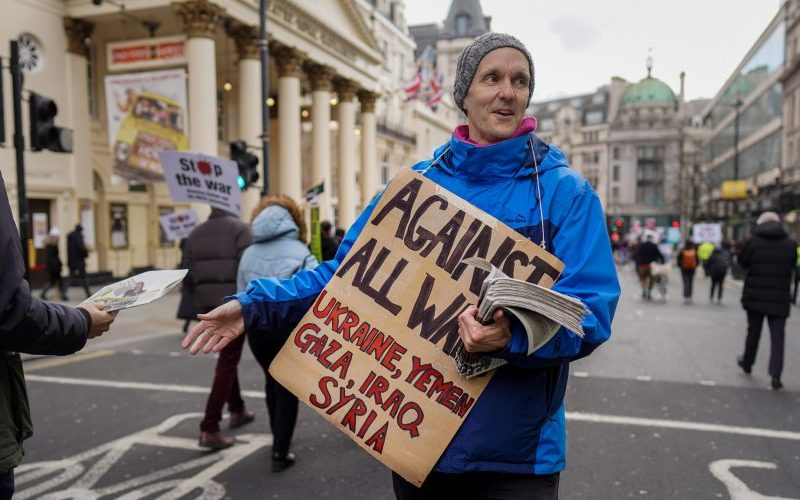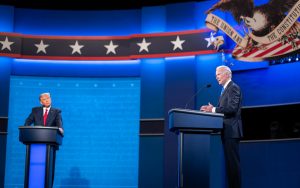In the early days of Russia’s current war in Ukraine, the UN security council convened a special session to address the crisis. A resolution, which condemned Russia’s invasion, was drafted only to be vetoed by Russia. However, among those that abstained was the UAE, considered to be an important partner of the West in the Middle East. This sparked outrage in Western capitals, and many wondered how the UAE could not denounce Russia and its invasion of Ukraine. While various explanations were given, many overlooked an important factor. Abu Dhabi has been working closely with the Kremlin in the last few years over various issues. It is a manifestation of a much bigger phenomenon that has been taking place in the Middle East. In the last decade, Russia intervened aggressively in Middle Eastern politics and, in the process, established strong ties with the region’s different regimes. For these regimes, Russia is now seen as an important ally that they cannot afford to alienate. Therefore, many of the region’s governments either bluntly side with the Kremlin over the Ukraine war or avoid condemning it in sympathy for the Kremlin and its interests. All of this is a crucial result of Putin’s policies in the Middle East, and they are integral to his overall vision of the world and Russia’s place in it.
In order to understand how Middle Eastern regimes and Putin developed such strong ties, one needs to look at the Arab uprisings and their ramifications. The regimes that were in power for decades found themselves being significantly challenged by revolutions that called for political and socio-economic change. These regimes responded with violence to suppress these uprisings, including military force in Libya in 2011-2012 and in Syria throughout the last decade. Regional powers such as Iran, Saudi Arabia and the UAE (in addition to facing their own domestic challenges) supported other autocratic regimes directly (such as Iran’s deployment of its proxies to Syria and the Saudi intervention in Bahrain) and indirectly (such as the Gulf countries’ backing of the coups in Egypt and Sudan). It was also during this time that Russia intervened in the region, particularly in Syria, where the Kremlin deployed its military to prop up the Assad regime. Russia has also politically and militarily intervened in Libya to back local strongmen such as Khalifa Haftar and Saif Al-Islam Qaddafi and others. These interventions were carried out in partnership and coordination with other regional actors, and the Kremlin used this to curry favors with all of them. The Kremlin would support a regime whenever it faced challenges at home and/or abroad. These include Saudi Arabia, the Egyptian autocrat Abdul-Fattah Al-Sissi, the Junta in Algeria, and the regimes in Iran and the UAE. This support of the region’s autocracies is motivated by the Kremlin’s belief that involvement in Middle Eastern politics will bolster Russia’s place in international politics and help restore Russia’s great power status. The first to formulate this belief was Yevgeny Primakov, who served as both Foreign Minister and Prime Minister during the 1990s. Primakov argued that Middle Eastern politics is an arena where Russia can project its power internationally. This became part of what is now referred to as the Primakov Doctrine and it has influenced Putin’s own policies towards the Middle East. By supporting the autocracies of the region, the Kremlin succeeded in restoring its prominence in the Middle East and leveraged it in dealings with western powers. However, Russia’s successes in the Middle East are now overshadowed by its current war against Ukraine.
Russia’s military setbacks in Ukraine and Putin’s fixation on achieving victory have made the war Russia’s top foreign policy concern. Unsurprisingly, the Kremlin has used the alliances and partnerships that it has cultivated over the years to both legitimize its war against Ukraine and push back against international attempts to hold it accountable. Among the Middle Eastern regimes that rallied behind the Kremlin over the Ukraine war were the Assad regime (which owes its survival to Russian military and diplomatic support) and the junta in Sudan (which toppled a transitional government in 2021 with the backing of Russia and other countries). Other governments in the region took a more ambiguous stance. While they officially called for the cessation of hostilities and the respect of territorial integrity, they refused to condemn Russia and join international efforts to punish the Kremlin. Saudi Arabia, for example, adopted an ambivalent and mild response to Russia’s invasion. Riyadh also refused to increase its oil production as demanded by the US and the EU, citing the OPEC+ arrangement which it brokered with the Kremlin in 2017. The arrangement allows oil producing countries (both OPEC members and non-members) to coordinate oil production to maintain price stability in the oil market and Saudi Arabia (and other oil producing countries) claimed that increasing oil production would jeopardize the arrangement. Only recently did the OPEC group agree to increase its oil production. As for Iran, Saudi Arabia’s rival, the government adopted an ambiguous stance that is sympathetic to Russia. It has parroted the Kremlin’s claim of NATO provoking Russia into attacking Ukraine and that this was the only means for Russia to defend itself. It even claimed that the backlash against Russia is another symptom of what it describes as the “decline” of the American-led order. Other regional powers that also took an ambiguous stance towards the conflict are the UAE and Israel, both considered to be key Middle Eastern partners of the West. The UAE abstained from voting the UNSC resolution that condemned Russia’s invasion. Meanwhile, Israel avoided criticizing Russia’s invasion and it even refused to provide weapons to Ukraine (despite pleas from the Ukrainian government). In addition, both Israel and the UAE have become popular destinations for Russian oligarchs evading western sanctions.
The motivations of these regional actors provide insights into how Russia was able to cultivate strong ties with them to its benefit. For instance, Saudi Arabia has found common ground with Russia on many issues. Both are staunch backers of the Egyptian strongman Abdul-Fattah Al Sissi and his regime. Russia and Saudi Arabia also back the Libyan warlord Khalifa Haftar and support him diplomatically, militarily, and financially in his bid to become the autocratic ruler of Libya. Russia was also able to win Saudi support by diplomatically backing its intervention in Yemen at the UN security council, shielding it from international criticism in the fallout of Khashoggi’s murder, and providing the Kingdom with Russian weaponry. The UAE shares the same goals and interests as those of Russia and Saudi Arabia with regards to Egypt, Sudan and Libya. In fact, the UAE has become one of Russia’s key allies in the region. The UAE, along with Russia and other Arab countries, seeks to rehabilitate the Assad regime after facing diplomatic isolation since 2011 for its brutal repression of the Syrian uprising and its subsequent scorched-earth military campaign. As for Iran, the regime in Tehran firmly believes that its survival is contingent on developing strong ties with both China and Russia, also known as the “look East” policy. The more domestic challenges and international condemnation that the regime faces, the more it will emphasize its relationship with Russia and China. Russian support is also crucial for propping up Iran’s intervention in Syria. Afterall, it was the former IRGC commander Qassem Solimani who implored the Kremlin to militarily intervene in Syria in 2015, a point in time when the Assad regime was suffering from a series of crippling defeats. The miliary alliance between Tehran and Moscow ensured the survival of Bashar Al-Assad’s weakened regime. This, however, did not stop Russia from establishing partnerships with other regional actors weary of Iran and its regional activities, chief among them being Israel. From the beginning of its intervention in Syria, the Russian military established lines of communication with the Israeli army to coordinate their respective military activities in Syria. This coordination was also done at the political level between Putin and former Israeli prime minister Benjamin Netanyahu (who was very close to Putin) and his successor Naftali Bennet. Israeli officials often cite Russian-Israeli coordination vis-à-vis Syria as a reason for Israel’s reluctance to take a clear stance regarding the war in Ukraine. Some Israeli officials even refer to Russia as “Israel’s neighbor”. For its part, Russia has used Israeli-Iranian tensions over Syria to strengthen its role in the country and position itself as an indispensable partner to both Tel-Aviv and Tehran. Beyond the Syrian issue, both Russia and Israel strengthened their military and economic ties over the last decade. Arms sales are among the key tools which Russia uses to gain the support of the region’s governments. Egypt & Algeria are among the top recipients of Russian arms and Saudi Arabia and the UAE have lately become major importers of Russian weapons. Preserving Russia as a major provider of armaments is one important factor behind many Middle Eastern governments’ ambiguous approach to Putin’s invasion of Ukraine.
Ambivalent Relationships
The greatest paradox of this phenomenon is that many of these Middle Eastern regimes that are close to the Kremlin also have strong ties with the West. Western countries such as the US, UK and France have supported these regimes despite the transgressions that they have committed in their countries and elsewhere. Israel, for example, has long enjoyed American support and successive Republican & Democratic administrations shielded Israel from international scrutiny. France under the Macron presidency has become a major provider of weapons to Egypt, Saudi Arabia and the UAE. There is also an ideological dimension to France’s current Middle East policy as Emmanuel Macron shares with other Middle Eastern regimes (such as Egypt and the UAE) the belief that the region can only be governed by autocracies and that democratization will only have negative repercussions. For example, France was a member of the international coalition (along with Russia) that backed Khalifa Haftar in Libya that further destabilized the country. The UK and Germany also provided arms to Egypt and the Gulf countries. Despite the controversy that these policies generated, various western governments defended them and argued that working with these regimes is vital for maintaining regional stability. All of this took place in parallel with the Kremlin’s efforts to cultivate ties with these same regimes. In addition, the West itself partnered with Russia to tackle various regional issues. The most illustrative example of this was Syria, where the Obama and Trump administrations sought to work with the Kremlin despite its support of the Assad regime and committing crimes against humanity in the process. In short, western policies towards the region has enabled Russia to play a destructive role in the Middle East.
Middle Eastern regimes will continue to avoid taking a clear stance against Russia as long as the war drags on. While some of them are attempting to capitalize on Europe’s energy needs by presenting themselves as alternative providers of fossil fuels, they also seek to be on good terms with the Kremlin. These regimes have been suppressing popular uprisings since 2011 and they are keen on obtaining support from any major international power. Russia has stepped in to support these regimes to regain its clout in the Middle East and it has used its regional interventions to enhance its status as a global power. Despite the devastation that Russia’s interventions caused in the region, the international community turned a blind eye and sought to work with Russia and the region’s autocracies under the belief that cooperating with these problematic actors was necessary to prevent regional chaos and to safeguard western interests. They ignored how Russia’s involvement in the region emboldened the Kremlin to take even more aggressive actions, including its war against Ukraine. Instead of approaching the war in Ukraine in isolation, it should be viewed as part of the Kremlin’s wider effort in asserting itself as a global power through revanchism and support for authoritarianism everywhere. Acknowledging this is necessary to keep the Kremlin’s revanchism in check to maintain global stability.
Sources Aharonson, Mickey. (2019). Russia-Israel Relations: Expectations and Reality. The Moscow Times. https://www.themoscowtimes.com/2019/11/20/russia-israel-relations-expectations-and-reality-a68249 Al-Anani, Khalil. (2022). Russia’s War on Ukraine: Egypt’s Limited Room for Maneuver. Arab Center Washington DC. https://arabcenterdc.org/resource/russias-war-on-ukraine-egypts-limited-room-for-maneuver/ Berger, Miriam. (2020). Qasem Soleimani helped shape the brutality of the Syrian war. The Washington Post. https://www.washingtonpost.com/world/2020/01/03/qasem-soleimani-helped-shape-brutality-syrian-war/ Blas, Javier. (2022). OPEC Wants Russia as an Oil Ally, in Peace and in War. Bloomberg. https://www.bloomberg.com/opinion/articles/2022-03-31/ukraine-war-opec-saudi-arabia-wants-russia-as-an-oil-ally Bussewitz, Cathy. (2022). OPEC+ Oil Boost Likely Not Much Help to High Gasoline Prices. BNN Bloomberg. https://www.bnnbloomberg.ca/opec-oil-boost-likely-not-much-help-to-high-gasoline-prices-1.1786332 Cafiero, Girorgio & Emily Milliken. (2022). Russians unlikely to leave Libya, despite Ukraine war. Al Jazeera. https://www.aljazeera.com/news/2022/4/15/russians-unlikely-leave-libya-despite-ukraine-war Cafiero, Girorgio. (2022). Ukraine is Assad’s New Dilemma. Politics Today. https://politicstoday.org/ukraine-russia-syria-assad-new-dilemma/ Chronas, Vasileios & Christian Hanelt. (2022). The EU and the Middle East: Exploring alternatives to Russian Energy. European & Global Dynamics. https://globaleurope.eu/globalization/the-eu-and-the-middle-east-exploring-alternatives-to-russian-energy/ Fathollah-Nejad, Ali. (2022). Russia’s invasion of Ukraine and the nature of Iranian-Russian relations. Middle East Institute. https://www.mei.edu/publications/russias-invasion-ukraine-and-nature-iranian-russian-relations Fenton-Harvey, Jonathan. (2022). Algeria’s conundrum over tensions between Russia and the West. The New Arab. https://english.alaraby.co.uk/analysis/algerias-conundrum-over-russias-tensions-west Fondacci, Elvire. (2021). France Should Stop Selling Arms to the United Arab Emirates, Saudi Arabia. Human Rights Watch. https://www.hrw.org/news/2021/12/02/france-should-stop-selling-arms-united-arab-emirates-saudi-arabia Gabon, Alain. (2019). The Middle East according to France’s Emmanuel Macron. Middle East Eye. https://www.middleeasteye.net/opinion/middle-east-according-frances-emmanuel-macron Goss, Louis. (2022). Russian Oligarchs Look Towards Dubai and Israel in Efforts to Avoid Sanctions. City AM. https://www.cityam.com/russian-oligarchs-look-towards-dubai-and-israel-in-efforts-to-avoid-sanctions/ Hassan, Hassan. (2018). The Arab Winter Is Coming. The Atlantic. https://www.theatlantic.com/ideas/archive/2018/11/where-us-middle-east/574747/ Harchaoui, Jalel & John Lechner. (2022). How Russia’s War in Ukraine Affects Its Meddling in Africa. Lawfare. https://www.lawfareblog.com/how-russias-war-ukraine-affects-its-meddling-africa \ Harchaoui, Jalel. (2021). The Pendulum: How Russia Sways its Way to More Influence in Libya. War on the Rocks. https://warontherocks.com/2021/01/the-pendulum-how-russia-sways-its-way-to-more-influence-in-libya/ Hamad, Sam (2018). ‘Arab NATO’ would be a disaster for democracy. The New Arab. https://english.alaraby.co.uk/opinion/arab-nato-would-be-disaster-democracy Horton, Jake (2021). Israel-Gaza: How much money does Israel get from the US? BBC. https://www.bbc.com/news/57170576 Hullinghorst, Yannick & Stephan Roll. 2021. German Arms Exports and the Militarisation of Arab States’ Foreign Policies (SWP) Comment. No.6. https://www.swp-berlin.org/publications/products/comments/2021C06_GermanArmsExports.pdf Hilsman, Patrick. (2019). How Israeli-Designed Drone became Russia’s Eyes in The Sky for Defending Bashar Al-Assad. The Intercept. https://theintercept.com/2019/07/16/syria-war-israel-russia-drones/ Jalani, Marwan Safar. (2022). The Russian invasion of Ukraine happened because the world gave Vladimir Putin a free pass in Syria. The Atlantic Council. https://www.atlanticcouncil.org/blogs/menasource/the-russian-invasion-of-ukraine-happened-because-the-world-gave-vladimir-putin-a-free-pass-in-syria/ Jones, Seth.2020. Moscow’s War in Syria. Center for Strategic & International Studies. https://www.csis.org/analysis/moscows-war-syria Kainikara, Sanu. (2019). Russia’s Return To The World Stage: The Primakov Doctrine – Analysis. Eurasia Review. https://www.eurasiareview.com/05112019-russias-return-to-the-world-stage-the-primakov-doctrine-analysis/ Katz, Mark N. (2021). Russia is friendly with the Houthis in Yemen. But it’s complicated. The Atlantic Council. https://www.atlanticcouncil.org/blogs/menasource/russia-is-friendly-with-the-houthis-in-yemen-but-its-complicated/ Kuimova, Alexandera. 2019. Russia’s Arms Exports to the MENA Region: Trends and Drivers. EuroMesco. No.95. https://www.euromesco.net/publication/russias-arms-exports-to-the-mena-region-trends-and-drivers/ Mackey, Robert. (2022). Why Israel Refused to Help Ukraine Defend Itself from Russian Missiles. The Intercept. https://theintercept.com/2022/03/23/ukraine-russia-peace-negotiations-israel/ Mandour, Maged. (2022). The Cairo-Paris Axis. The Carnegie Endowment for International Peace. https://carnegieendowment.org/sada/86239 Mezher, Chyrine. (2021). Russia, KSA Strengthen Military Ties In Signal To Washington; UAVs, Helos Potentially On Table. Breaking Defense. https://breakingdefense.com/2021/09/russia-ksa-strengthen-military-ties-in-signal-to-washington-uavs-helos-potentially-on-table/ Nashed, Mat. (2022). Sudan: Russian influence and Ukraine war stir domestic tensions. Al Jazeera. https://www.aljazeera.com/features/2022/3/18/sudan-russian-influence-and-ukraine-war-stir-domestic-tensions Nougayrede, Natalie. (2015). The west must resist playing Putin’s game in Syria. That way calamity lies. The Guardian. https://www.theguardian.com/commentisfree/2015/sep/18/putin-syria-assad-kissinger-khmer-rouge-disgust Pollack, Kenneth M. & Joseph W. Rank. (2020). “Little Sparta” and the Good Problem of Capable Allies, Lawfare. https://www.lawfareblog.com/little-sparta-and-good-problem-capable-allies Postel, Danny. 2021. The Other Regional Counter-Revolution: Iran’s Role in the Shifting Political Landscape of the Middle East. Josef Korbel School of International Studies-Center for Middle East Studies Occasional Papers Series. No.12. https://drive.google.com/file/d/1kdKvh6saRmqOX-L0eaSMkOOmskz–Z32/view Ramani, Samuel. (2022). A Middle Path for Saudi Arabia: How does the War in Ukraine Affect Saudi Foreign Policy? Gulf International Forum. https://gulfif.org/a-middle-path-for-saudi-arabia-how-does-the-war-in-ukraine-affect-saudi-foreign-policy/ Ramani, Samuel. 2020. Russia and the UAE: An Ideational Partnership. Middle East Policy. 27.(1), 125-140, https://www.researchgate.net/publication/340928287_Russia_and_the_UAE_An_Ideational_Partnership Ramani, Samuel. (2020). Saudi Arabia steps up role in Libya. Al-Monitor. https://www.al-monitor.com/originals/2020/02/saudi-arabia-role-liyba-gna-hifter.html Ramani, Samuel. (2021). Sudan-Russia Relations After The October Coup: The View From Moscow. Middle East Institute. https://www.mei.edu/publications/sudan-russia-relations-after-october-coup-view-moscow Roy-Chaudry, Rahul & Emile Hokayem. (2022). Understanding India and the UAE’s abstentions over Ukraine. International Institute for Strategic Studies (IISS). https://www.iiss.org/blogs/analysis/2022/03/understanding-india-and-the-uaes-abstentions-over-ukraine Romo, Vanessa. (2022). Russia vetoes UN Security Council resolution that denounces its invasion of Ukraine. NPR. https://www.npr.org/2022/02/25/1083252456/russia-vetoes-un-security-council-resolution-that-denounces-its-invasion-of-ukra Spinelli, Dan. (2022). When It Comes to Israel’s Response To The War In Ukraine-It’s Complicated. Mother Jones. https://www.motherjones.com/politics/2022/03/when-it-comes-to-israels-response-to-the-war-in-ukraine-its-complicated/ Tokmajyan, Armenak. (2022). The War in Ukraine Could Mean the Worst for Shattered Syria. Democracy for the Arab World Now (DAWN). https://dawnmena.org/the-war-in-ukraine-could-mean-the-worst-for-shattered-syria/ Townsend, Mark. (2021). £17bn of UK arms sold to rights’ abusers. The Guardian. https://www.theguardian.com/world/2021/jun/27/17bn-of-uk-arms-sold-to-rights-abusers Ugarte, Bruno Stagno. (2020). Macron’s Selective Indignation over Libya. Human Rights Watch. https://www.hrw.org/news/2020/07/17/macrons-selective-indignation-over-libya Zaken, Danny. (2022). Israel’s trade with Ukraine, Russia to be affected by conflict. Al-Monitor. https://www.al-monitor.com/originals/2022/03/israels-trade-ukraine-russia-be-affected-conflict Ziadeh, Radwan. (2021). Rehabilitation of the Assad Regime. Arab Center Washington DC. https://arabcenterdc.org/resource/rehabilitation-of-the-assad-regime/








Be First to Comment